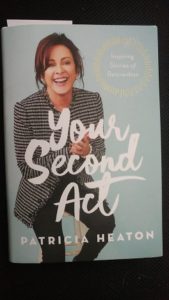Books | Personal Growth
Book Review: Your Second Act by Patricia Heaton Will Have You Contemplating Action
View life’s interruptions as interruptions, not ending points. This is one of “Patty’s Points” in Patricia Heaton’s latest book Your Second Act. I consumed this book over the weekend in two days. I loved it. I needed it, and now I want to gift it to my closest friends and female relatives. These interruptions we experience in life (especially now, during a pandemic) can be “opportunities to reassess and regroup.”

Well said, Patty. I can call you Patty, right? Most people know you as the actress from the television series’ Everybody Loves Raymond, The Middle and Carol’s Second Act. Yet I feel that if I meet you someday we would just talk about being a mom, preparing foods and learning from others’ stories. I learned a lot from and saw myself in your 14 stories about other’s “second acts.”
What’s a Second Act?
Patty describes second acts as a “challenge, growth or change” that occurs in an individual’s life that takes a person out of his or her comfort zone. A person may have an unwavering feeling to take on a new task or make a career change. That second act can be by choice like Dr. Paul Osteen or it can be forced by circumstances such as a tragic accident in the case of Sarah Foley or a child’s autism diagnosis for Yudi Bennett.
What I liked about the stories in this book was the vast diversity in how the second act came to be from each “second actor.” Some second actors planned theirs and some just took each step as they came. Patty points out after Liz Smothers’ story that we “don’t have to have it all figured out” before we start. In fact in some cases, “if we believe we have it all figured out, or if we become determined to do something in a certain way, we can close ourselves off to opportunities that can take us further in life than our original plan.”
Openness, Time and Self-Assessment
Being open to change and adaptability was a key takeaway in this book. Another is partnering with the right people to support and encourage you. One of Patty’s points specifically says, “Find trusted mentors and supporters of your dream.” A dream can often take a team to bring it to life. No one in the book became successful by taking action without help.
Giving yourself time and doing self-work are two more pieces of advice that Patty gives in Dr. Joel Osteen’s story. He ran a successful medical practice in Arkansas before making a physical move and life change into medical ministry in Houston, Texas. Before he made that big decision and big move, he gave himself time to let the ideas sink in to be sure he did not act too quickly. He also spent time on assessing who he was. He and Patty are both firm believers in self-assessments like Myers-Briggs, DISC Assessment and therapy.
I agree and am a proud ISFJ according to Myers-Briggs. I am called a “defender who is introverted, observant, feeling and judging.” My personality is described as “warm and unassuming, efficient and responsible, giving careful attention to practical details in my daily life.” I have also read and taken Dr. Gary Chapman’s The Five Love Languages quiz to learn more about my expression of love. I quickly figured out what my husband is and my kids are as well through these quizzes. Knowing this about myself helps me understand why I feel and react the ways I do. They have made me a better partner, mom and friend.
Grieve the Life You Had
Sarah Foley’s story was one of the most powerful in the book for me. I found her website Vertical Blonde to learn more about her. An ATV accident left her with spinal cord injury that caused her to redefine who she was and how she could live her life with abilities, not just a disability. She admits that she had the “perfect life” prior to her accident and spent several years afterwards trying to get back to the person she was, before being in a wheelchair.
Sarah talks honestly about traveling through those dark places of denial and grief to get to a better place. Her therapist suggested she have a funeral for the old Sarah so she could then focus on who Sarah is now and will be in the future. This helped her focus on growth and the future or as Patty points out, “Let go of what no longer serves you.”
Reflection Questions and Facing the Future
Each chapter closing had a series of reflection questions to help the reader think more about her or his situation. How do you see yourself in the story? What were your key takeaways? I could find points in every story and reflect on my own experiences even though these situations and people are different from me.
Patty’s book Your Second Act had so many other wonderful points to it – the importance of laughter, acceptance of what you cannot change, giving back and other incredible impressions. I could write 1,000 more words on it. Instead I’ll just recommend that you read the book for your own ideas to put into action.
I just celebrated my 42nd birthday and have spent the last five months at home during a pandemic barely leaving the house. I wanted a new book to read, something uplifting to help me finish grieving my own pre-pandemic life. I’m thankful that I discovered Your Second Act. I craved words that would include profound, helpful stories. Patty delivered on this for me. Now I’m contemplating my own second act. Stay tuned. I’m just beginning the best years of my life.
(Note: This is NOT a paid advertisement. I was not asked to endorse or even read this book. I chose it as a birthday gift to myself and I enjoyed it so much that I felt compelled to review it and share it with others. I’m known for passing along books that should be shared among friends. I believe this is one of those books).

Leave a Reply